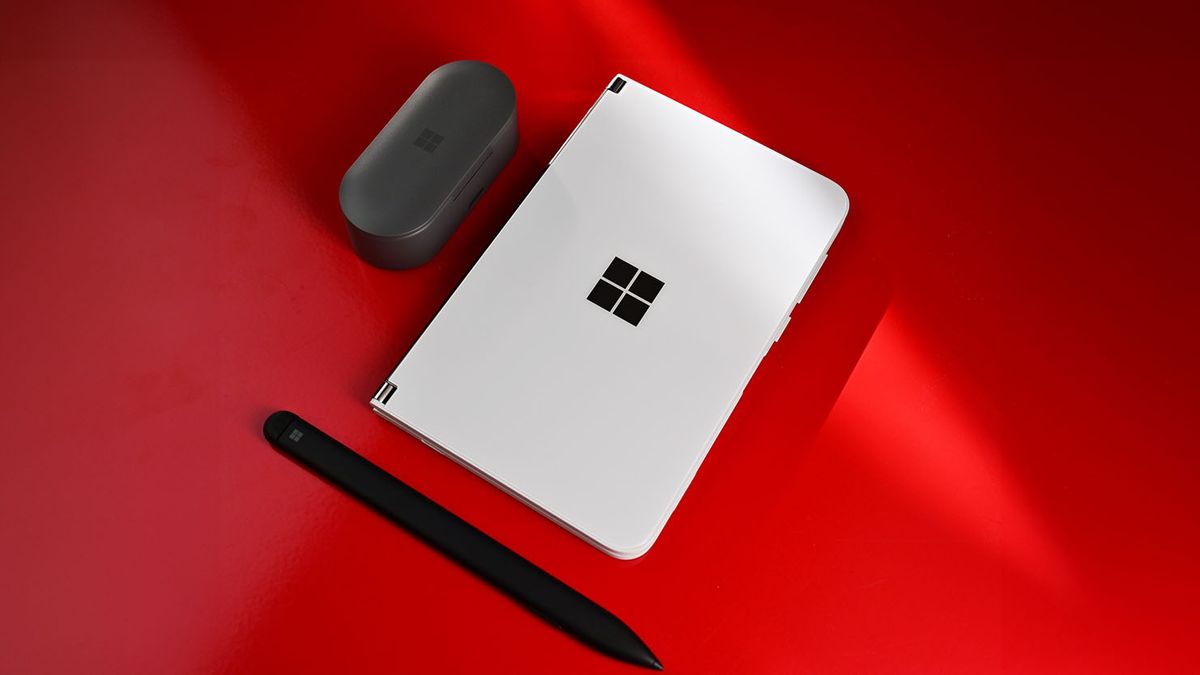Microsoft is done supporting the original Surface Duo, three years after it first launched on September 10. The company has stated from the very start that the Surface Duo would receive just three years of OS updates, meaning today is the last day that Microsoft has to stay true to its word.
Going forward, Microsoft will no longer ship new OS updates or security patches for the original Surface Duo, meaning Android 12L is the last version of the OS it will ever officially receive. Surface Duo only ever got two major OS updates, one shy of the average three that most high-end flagship Android devices get these days.



It’s really sad how dirty most companies seem to be doing the consumers when you’ve got Apple still pushing support for 6 year old phones. At least one company sets the standard. Now, can we get a Linux device that is a clone of the Surface Duo and has security updates for 5 years? Please?
Yeah, great standard setting by apple, supporting their users by intentionally slowing down their phones to encourage them to buy new ones.
Is the standard to attract class action lawsuits?
Removed by mod
Removed by mod
Removed by mod
deleted by creator
I didn’t imply anything— if you chose to infer something other than what I said, that’s on you, and the ignorance of others is not my job to correct.
If you wanna whip yourself up into a frenzy over ignorant disinformation, that’s your right, but hatefully attacking others for it is petty and childish. 
Bro why u calling him pretty
Typical misinformation. The lawsuits that worked are for Apple not informing people, not because Apple slowed down the phones. The ones that have been about the slowing down have either lost or been thrown out.
Also, your logic doesn’t make any sense. Are you saying that a slow phone is more likely to encourage someone to buy a new phone versus a phone that constantly dies at random times?
And if you wanted your phone back to full speed, all you had to do was replace your worn out battery. That seems like a dumb way to upsell someone on a phone if they can pay $100 for a new battery and have their phone back to full speed.
If it was really beneficial to the consumer, Apple would have been advertising it before they were legally required to tell people about it.
You obviously do not live in a cold country. iPhones up until version 5-6 or so (when this was introduced) was notorious for turning off at 25-30% battery if it was slightly cold outside (sub 5 degree Celsius or so). It was a horrible experience that was completely removed by clocking down processors of battery worn phones.
I’ve never heard of a person turning off the option now when we’ve got the choice either.
It’s 100% beneficial to the customer.
Though, they should’ve been clearer with what they did and added a toggle from the start. Which is why they were fined.
It was listed in an update change log.
Apple reduced peak power limits on older phones with wrecked batteries. If they hadn’t, people would have had to put up with their phone crashing.
It’s amazing how in a story about Microsoft letting customers down, people feel compelled to make up bullshit about Apple.
I’m not even an Apple fan. If Android had the product support longevity and privacy of iOS, I’d consider it. But nope, we get disposable products and an icky privacy history. I wouldn’t call Apple great in either category. AFAIK there are no smartphone manufacturers who are.
Regarding privacy on iOS, I recommend watching [this video] (https://www.youtube.com/watch?v=JHnBOUNxHsw). You can get more privacy on Android with some tweaking (custom ROMs, AdAway, uninstalling pre-installed bloatware, etc…). There are several ways to get more privacy, some easier than others. I know most people won’t even try. On the other hand, with iOS, you’re handing your privacy over to Apple in good faith, but you have far fewer options to take things into your own hands. People want privacy out of the box, but that often clashes with companies’ interest in making as much money as possible (simply put). Some companies use privacy as a selling point in their marketing campaign, but often it is just false advertising.
you call it “some tweaking” when in reality for 99,5% of android users it would be the same to tell them to get better performance on their cars if you just switch out the engine, do a custom paint job und replace the computer", just to have them finding out, it’s not even possible because on most models the hood cannot be opened.
Here is an alternative Piped link(s):
https://piped.video/watch?v=JHnBOUNxHsw
Piped is a privacy-respecting open-source alternative frontend to YouTube.
I’m open-source, check me out at GitHub.
Indeed but this highlights a fundamental issue with phones (and all devices): because Apple can continually monetize their devices with locked-in app stores and a litany of services etc they can easily afford and are incentivised to support devices for a long time.
Device makers third-party to platform ecosystems, like Microsoft to Android (but not Windows) find it extremely difficult if not impossible to gain these sorts of long-term monetisation which incentivises maximizing profits on the sale and then immediately dropping support.
When even Apple keep their stuff supported, you know everyone else is in the wrong.
See Purism Librem 11 or Starlabs Starlite